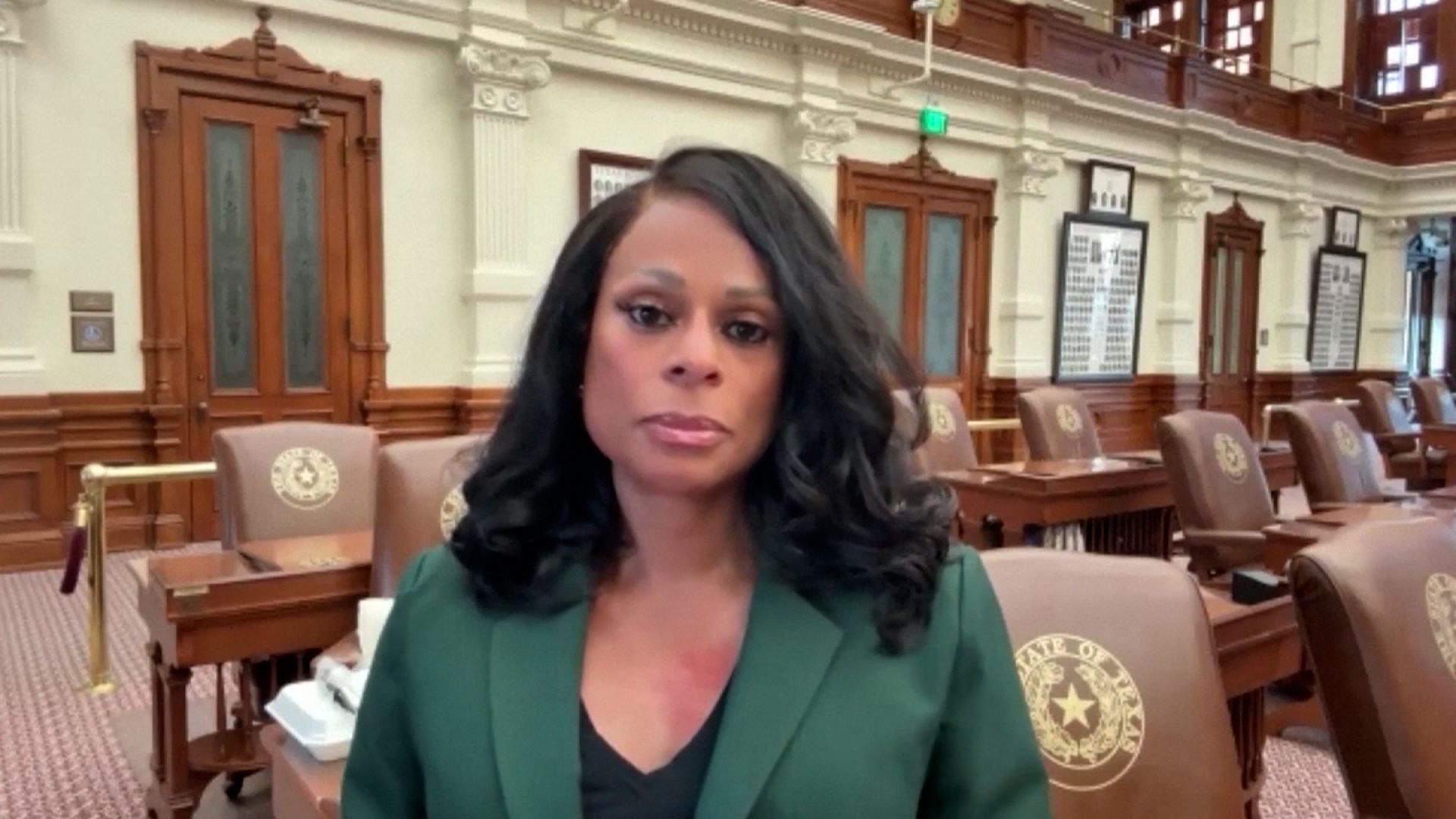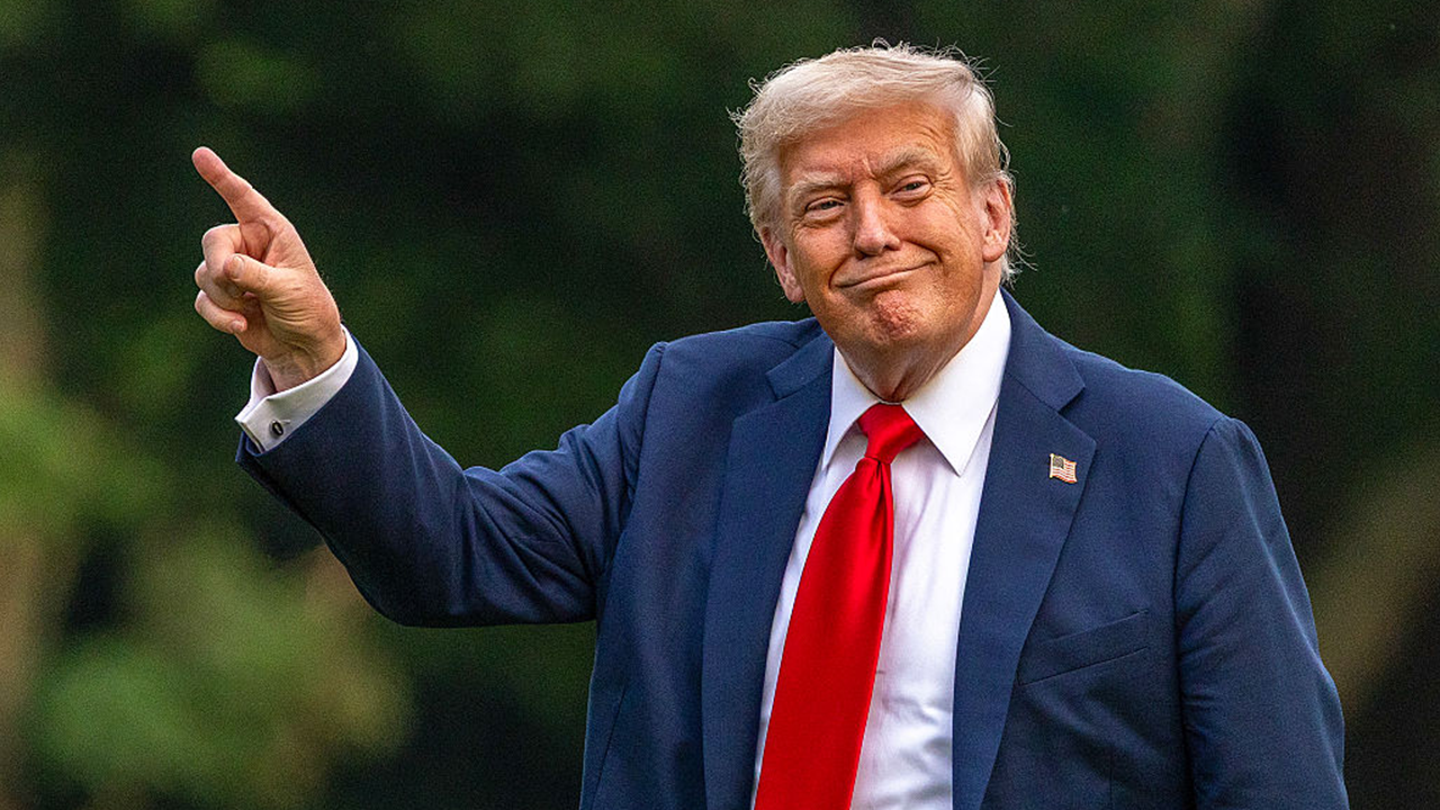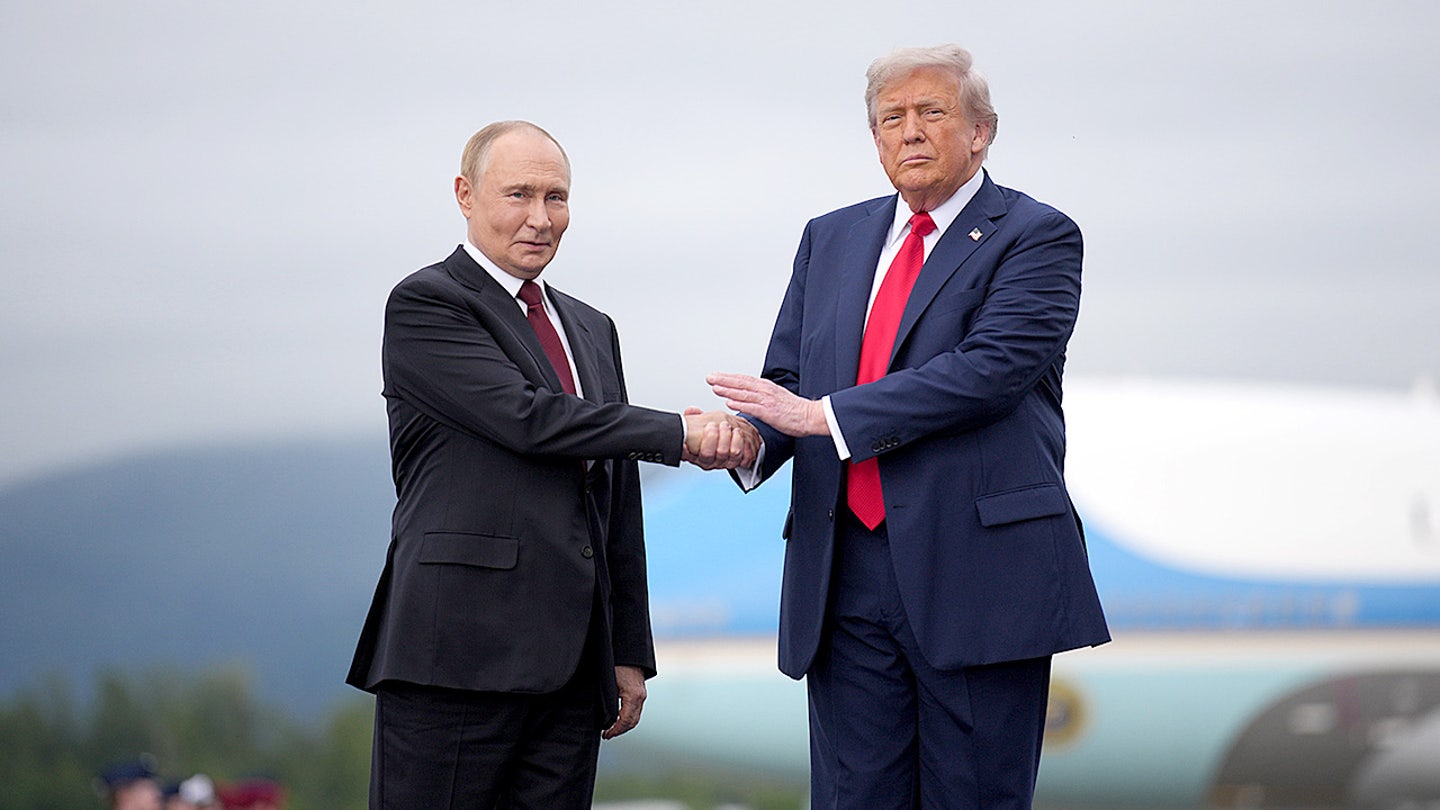
Democratic Texas lawmaker passes 24-hour mark on state House floor after refusing GOP demand for law enforcement escort
Entities mentioned:
- Nicole Collier: Righteousness, Determination, Duty
- Dustin Burrows: Control, Power, Duty
- Texas House Democrats: Resistance, Justice, Self-preservation
- Texas Republicans: Power, Control, Ambition
- Beto O'Rourke: Moral outrage, Unity, Recognition
- Greg Abbott: Power, Ambition, Loyalty
- Donald Trump: Influence, Power, Control
- Gavin Newsom: Competitive spirit, Power, Revenge
Article Assessment:
Credibility Score: 75/100
Bias Rating: 45/100 (Center)
Sentiment Score: 35/100
Authoritarianism Risk: 65/100 (Authoritarian Tendencies)
Bias Analysis:
The article presents perspectives from both Democrats and Republicans, quoting multiple sources. While it gives more space to Democratic viewpoints, it includes Republican statements and contextualizes the broader political landscape.
Key metric: Electoral Integrity
As a social scientist, I analyze that this article highlights a significant conflict over redistricting in Texas, which has broader implications for national electoral integrity. The standoff between Democrats and Republicans over proposed redistricting plans underscores the intensifying partisan struggle for control of the U.S. House of Representatives. Rep. Collier's protest against what she perceives as intimidation tactics reflects growing tensions around voting rights and fair representation. The involvement of law enforcement in monitoring legislators' movements raises concerns about the balance of power between branches of government. This situation exemplifies how gerrymandering and redistricting battles are becoming increasingly contentious, with potential long-term impacts on democratic processes and voter representation. The article also reveals how state-level actions can trigger nationwide responses, as seen in California's proposed countermeasures, indicating a broader, more complex challenge to maintaining electoral integrity across the United States.

Rubio hails Trump as 'only leader in the world' who can broker Ukraine peace deal after talks
Entities mentioned:
- Marco Rubio: Loyalty, Influence, Competitive spirit
- Donald Trump: Power, Recognition, Influence
- Joe Biden: Obligation, Security, Duty
- Volodymyr Zelenskyy: Self-preservation, Duty, Determination
- Vladimir Putin: Power, Control, Influence
- NATO: Security, Unity, Duty
Article Assessment:
Credibility Score: 55/100
Bias Rating: 75/100 (Lean Right)
Sentiment Score: 65/100
Authoritarianism Risk: 45/100 (Mixed/Neutral)
Bias Analysis:
The article leans right, primarily due to its uncritical presentation of Republican viewpoints and criticism of the Biden administration. It relies heavily on Marco Rubio's statements without offering contrasting perspectives or fact-checking claims about Trump's peace-brokering abilities.
Key metric: Diplomatic Influence
As a social scientist, I analyze that this article presents a shift in the U.S. approach to the Ukraine-Russia conflict under the Trump administration. The narrative emphasizes Trump's alleged unique ability to broker peace, contrasting it with the perceived ineffectiveness of the Biden administration. This framing potentially impacts U.S. diplomatic influence by suggesting that Trump's personal relationships with world leaders are key to resolving international conflicts. The article's focus on changing dynamics in weapon supply and funding methods also indicates a potential shift in international perceptions of U.S. foreign policy. However, the heavy reliance on Rubio's statements without significant counterbalancing perspectives raises questions about the comprehensiveness of the analysis presented.

Ex-Paramount chief hoped Trump lawsuit would force CBS to be more balanced on Israel
Entities mentioned:
- Shari Redstone: Influence, Justice, Professional pride
- Donald Trump: Power, Justice, Revenge
- CBS News: Professional pride, Influence, Recognition
- Paramount: Self-preservation, Influence, Professional pride
- Tony Dokoupil: Professional pride, Justice, Duty
- Bill Owens: Professional pride, Righteousness, Self-respect
- Scott Pelley: Professional pride, Loyalty, Concern
Article Assessment:
Credibility Score: 70/100
Bias Rating: 65/100 (Lean Right)
Sentiment Score: 35/100
Authoritarianism Risk: 45/100 (Mixed/Neutral)
Bias Analysis:
The article leans slightly right, focusing on criticisms of CBS's perceived anti-Israel bias and highlighting conservative viewpoints. While it presents some balancing information, the overall framing favors the perspective of those critical of CBS's coverage.
Key metric: Media Trust and Credibility
As a social scientist, I analyze that this article highlights the complex interplay between media ownership, editorial decisions, and political influence in shaping news coverage. The controversy surrounding CBS's coverage of the Israel-Hamas conflict reveals tensions between journalistic integrity, corporate interests, and personal biases. Redstone's apparent hope that Trump's lawsuit could influence CBS's editorial stance raises concerns about the independence of news media and the potential for powerful individuals to shape public narratives. This situation underscores the challenges in maintaining balanced reporting on sensitive geopolitical issues and the internal conflicts that can arise within media organizations when trying to navigate these complexities.

White House launches official TikTok account with Trump featured prominently in debut video
Entities mentioned:
- White House: Influence, Recognition, Ambition
- Donald Trump: Power, Influence, Recognition
- Karoline Leavitt: Duty, Loyalty, Professional pride
- Kai Trump: Recognition, Influence, Enthusiasm
- ByteDance: Self-preservation, Security, Control
- Congress: Security, Control, Duty
Article Assessment:
Credibility Score: 70/100
Bias Rating: 65/100 (Lean Right)
Sentiment Score: 65/100
Authoritarianism Risk: 35/100 (Generally Democratic)
Bias Analysis:
The article leans slightly right, focusing predominantly on Trump and his administration's perspective. While it mentions the previous ban attempt, it doesn't deeply explore opposing viewpoints or potential controversies surrounding the White House's use of TikTok.
Key metric: Political Engagement of Young Voters
As a social scientist, I analyze that the White House's adoption of TikTok represents a significant shift in political communication strategies, aimed at engaging younger demographics. This move could potentially increase political participation among Gen Z and younger Millennials, traditionally harder-to-reach voter groups. The emphasis on Trump in the debut video suggests a personalization of politics, which could either galvanize supporters or alienate critics. The apparent reversal of Trump's previous stance on TikTok raises questions about policy consistency and the influence of social media platforms on governance. This development may lead to increased scrutiny of the relationship between social media companies and government, particularly regarding data security and foreign influence.

James Carville: Dems need a presidential nominee
Entities mentioned:
- James Carville: Influence, Recognition, Duty
- Democrats: Ambition, Power, Anxiety
- Bill Maher: Influence, Recognition, Freedom
- Donald Trump: Power, Control, Righteousness
- Jesse Watters: Influence, Recognition, Competitive spirit
Article Assessment:
Credibility Score: 55/100
Bias Rating: 65/100 (Lean Right)
Sentiment Score: 35/100
Authoritarianism Risk: 55/100 (Mixed/Neutral)
Bias Analysis:
The article leans right due to its framing on a Fox News program and focus on Democratic party weaknesses. The presentation of Carville's criticism of Democrats and the emphasis on Trump's actions suggest a right-leaning perspective.
Key metric: Political Polarization Index
As a social scientist, I analyze that this article highlights the growing political divide and communication challenges within the Democratic party. Carville's criticism of Democrats' reluctance to engage with media figures like Bill Maher suggests internal party tensions and strategic disagreements. The mention of Trump's federal takeover of D.C. police further emphasizes the polarization between parties and concerns over executive power. This discourse likely contributes to increased political polarization, as it underscores the lack of unified messaging within the Democratic party and the ongoing conflicts with the Republican administration.

White House announces Putin agreed to bilateral meeting with Zelenskyy
Entities mentioned:
- Vladimir Putin: Power, Control, Self-preservation
- Volodymyr Zelenskyy: Determination, Justice, Unity
- Donald Trump: Legacy, Influence, Recognition
- Karoline Leavitt: Duty, Loyalty, Professional pride
- JD Vance: Duty, Influence, Ambition
- Marco Rubio: Duty, Influence, Professional pride
- Steve Witkoff: Duty, Influence, Professional pride
- Alexander Stubb: Unity, Recognition, Professional pride
- Keir Starmer: Unity, Recognition, Professional pride
- Mark Rutte: Unity, Recognition, Professional pride
Article Assessment:
Credibility Score: 65/100
Bias Rating: 70/100 (Lean Right)
Sentiment Score: 70/100
Authoritarianism Risk: 45/100 (Mixed/Neutral)
Bias Analysis:
The article leans right, focusing heavily on Trump's role and quoting primarily conservative or Trump-aligned sources. It presents a largely positive view of Trump's diplomatic efforts without significant counterbalancing perspectives.
Key metric: International Relations and Diplomacy
As a social scientist, I analyze that this article represents a significant shift in the dynamics of the Russia-Ukraine conflict. The agreement for a bilateral meeting between Putin and Zelenskyy, facilitated by the Trump administration, suggests a potential breakthrough in peace negotiations. This development could have far-reaching implications for global stability, NATO's role, and U.S. foreign policy. The involvement of multiple European leaders and their praise for Trump's efforts indicates a realignment of international diplomatic efforts. However, Putin's statement about the 2020 U.S. election raises questions about the motivations behind Russia's actions and the potential fragility of any peace agreement. The article also highlights concerns about long-term security guarantees for Ukraine, which will be crucial for sustainable peace in the region.

'President of peace': Trump tapped for Nobel Prize amid talks to end Russia-Ukraine war
Entities mentioned:
- Donald Trump: Recognition, Legacy, Power
- Andy Ogles: Loyalty, Influence, Recognition
- Marlin Stutzman: Loyalty, Influence, Recognition
- Vladimir Putin: Power, Control, Influence
- Volodymyr Zelenskyy: Self-preservation, Unity, Security
- House Republicans: Loyalty, Influence, Power
Article Assessment:
Credibility Score: 55/100
Bias Rating: 75/100 (Lean Right)
Sentiment Score: 75/100
Authoritarianism Risk: 40/100 (Generally Democratic)
Bias Analysis:
The article leans heavily right, primarily due to its exclusive focus on positive portrayals of Trump's actions and reliance on Republican sources. The lack of alternative viewpoints or critical analysis of the claims made suggests a significant rightward bias.
Key metric: International Diplomacy and Conflict Resolution
As a social scientist, I analyze that this article presents a highly politicized view of Trump's diplomatic efforts. The nomination for the Nobel Peace Prize by Republican allies appears to be a strategic move to bolster Trump's image as a peacemaker, particularly in the context of the Russia-Ukraine conflict. The article emphasizes Trump's recent meetings with Putin and Zelenskyy, framing them as significant steps towards peace. However, it's important to note that the actual impact of these meetings on the conflict resolution is yet to be seen. The article also references past achievements like the Abraham Accords to strengthen Trump's credentials. This narrative seems designed to position Trump as a unique and effective international negotiator, potentially with an eye towards future political ambitions. The credibility of these claims and their long-term impact on international diplomacy and conflict resolution remain to be evaluated objectively.

Trump praises Melania’s ‘beautiful note’ to Putin, says Zelenskyy brought letter from wife to first lady
Entities mentioned:
- Melania Trump: Righteousness, Influence, Compassion
- Donald Trump: Power, Influence, Recognition
- Vladimir Putin: Power, Control, Self-preservation
- Volodymyr Zelenskyy: Justice, Duty, Unity
- Dana Perino: Professional pride, Influence, Duty
Article Assessment:
Credibility Score: 65/100
Bias Rating: 70/100 (Lean Right)
Sentiment Score: 55/100
Authoritarianism Risk: 35/100 (Generally Democratic)
Bias Analysis:
The article leans right, primarily due to its reliance on Fox News sources and positive framing of Trump administration actions. It presents a favorable view of Melania Trump's involvement without critically examining the broader context or effectiveness of such interventions.
Key metric: U.S. Diplomatic Influence
As a social scientist, I analyze that this article highlights the use of soft power diplomacy through the involvement of First Lady Melania Trump in the Ukraine-Russia conflict. The personal appeal to Putin, focusing on children's welfare, represents an attempt to leverage emotional and moral arguments in international relations. This approach could potentially impact U.S. diplomatic influence by presenting a more multifaceted and humanitarian-focused foreign policy. However, the effectiveness of such methods in resolving complex geopolitical conflicts remains questionable, especially given the limited decision-making power of first ladies in formal diplomacy.

Pete Hegseth Vomits Out Of Tank Hatch
Entities mentioned:
- Pete Hegseth: Recognition, Professional pride, Enthusiasm
- Fox News: Influence, Competitive spirit, Greed
Article Assessment:
Credibility Score: 50/100
Bias Rating: 45/100 (Center)
Sentiment Score: 30/100
Authoritarianism Risk: 20/100 (Strongly Democratic)
Bias Analysis:
The article appears to be centrally focused, merely reporting an incident without apparent political slant. However, the lack of context and brevity limit a full assessment of potential bias.
Key metric: Media Trust and Credibility
As a social scientist, I analyze that this article, while brief, highlights an embarrassing moment for a media personality that could impact public perception of news media professionalism. The incident of a Fox News host vomiting during a broadcast from inside a tank may diminish the seriousness with which viewers take news reporting, particularly on military matters. This event, while seemingly trivial, contributes to a broader narrative about the spectacle-driven nature of some news coverage, potentially eroding trust in media institutions. The impact on the Media Trust and Credibility metric is likely negative, as it portrays news personalities as unprepared or unprofessional in their reporting duties, especially in contexts that demand gravitas.
- Read more about Pete Hegseth Vomits Out Of Tank Hatch
- Log in to post comments

Trump Mouths Lyrics To ‘Happy Birthday’ While National Anthem Plays
Entities mentioned:
- Trump: Confusion, Self-preservation, Recognition
Article Assessment:
Credibility Score: 30/100
Bias Rating: 40/100 (Lean Left)
Sentiment Score: 55/100
Authoritarianism Risk: 20/100 (Strongly Democratic)
Bias Analysis:
The content leans slightly left in its mockery of a conservative political figure. However, its presentation as a horoscope rather than news limits its bias impact.
Key metric: Public Trust in Government
As a social scientist, I analyze that this article appears to be satirical in nature and not a factual news report. The content suggests a fictional scenario of a political figure misunderstanding a formal situation, which could impact public perception of leadership competence if taken seriously. However, the article's presentation as a horoscope rather than news indicates it is not meant to be interpreted literally. This type of satire can influence public discourse and potentially affect trust in political figures, but its impact is limited by its clearly non-journalistic format.